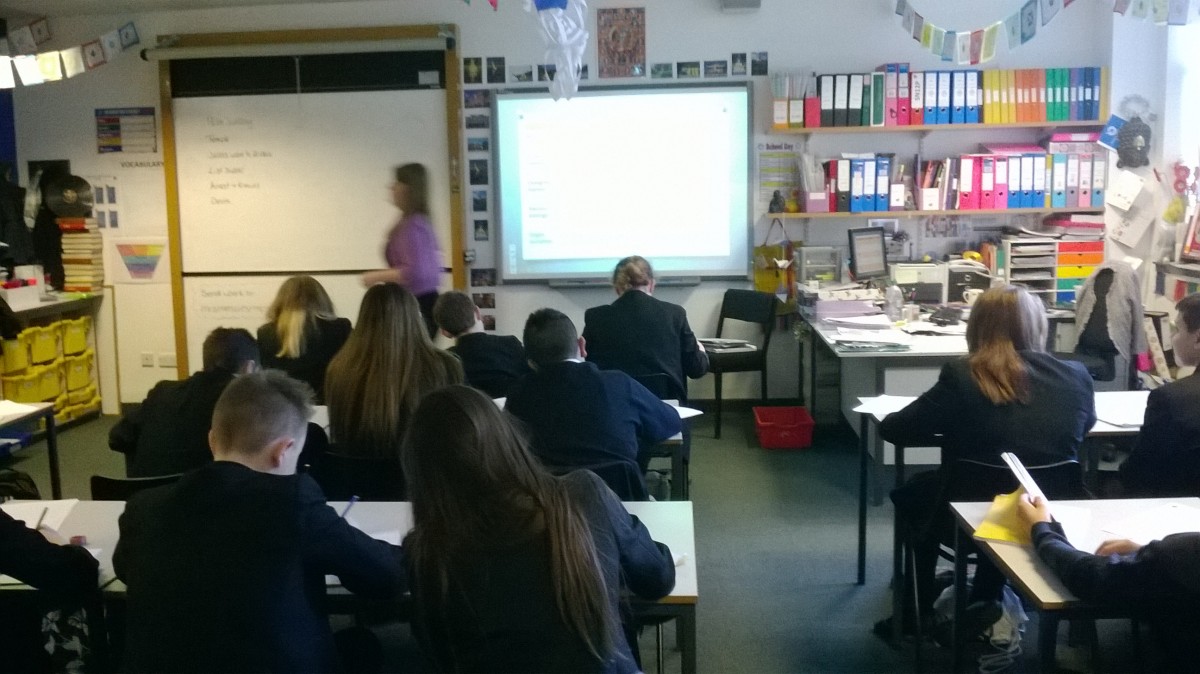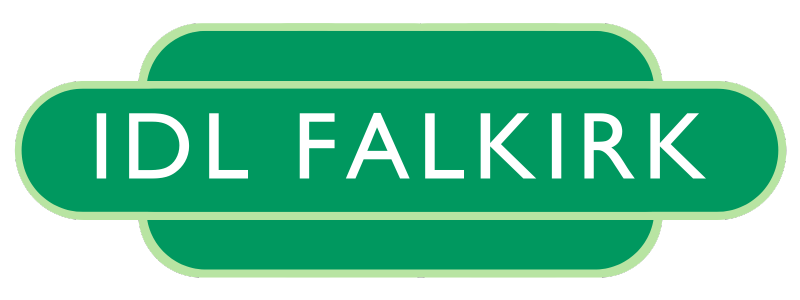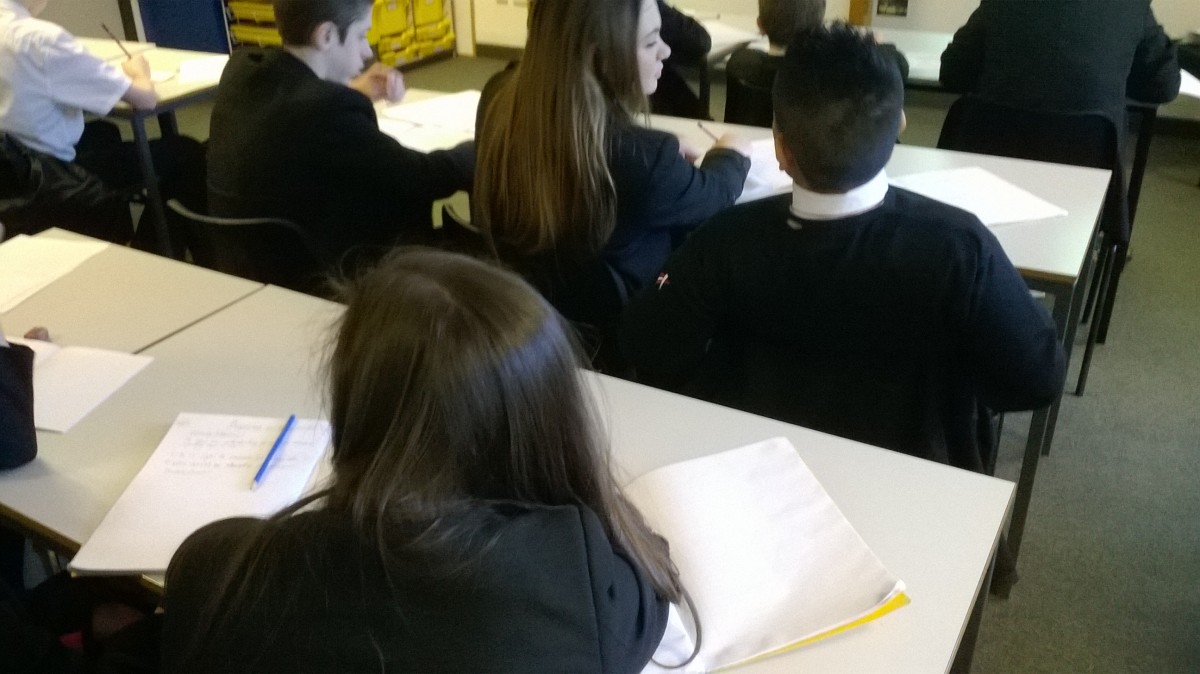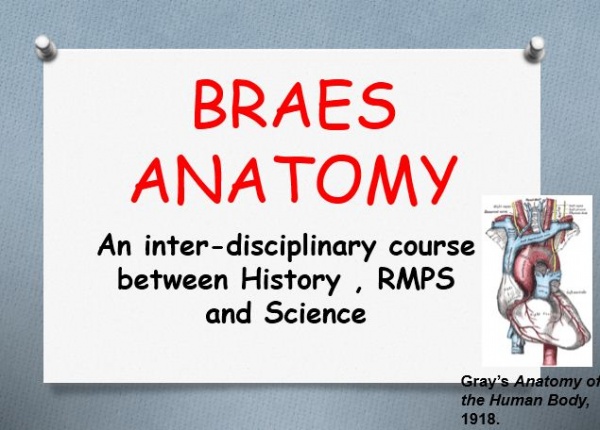 S2 pupils at Braes High School are coming close to the end of their Braes Anatomy interdisciplinary experience. This experience links science, social studies and RMPS through the context of vaccination – click here for more information about the whole project. On Monday 23rd March 2015, Yvonne McBlain joined S2.5 for their RMPS lesson with Mrs Menzies to see how things were progressing. Mrs Menzies gave a lesson entitled “Playing God or Doing Good?” where pupils developed their understanding of religious concerns regarding medical ethics.
S2 pupils at Braes High School are coming close to the end of their Braes Anatomy interdisciplinary experience. This experience links science, social studies and RMPS through the context of vaccination – click here for more information about the whole project. On Monday 23rd March 2015, Yvonne McBlain joined S2.5 for their RMPS lesson with Mrs Menzies to see how things were progressing. Mrs Menzies gave a lesson entitled “Playing God or Doing Good?” where pupils developed their understanding of religious concerns regarding medical ethics.
During this lesson, the young people explored their thinking about a number of medical moral dilemmas such as: stem cell research, designer babies and “saviour siblings”. They began by considering their own views about these dilemmas, then created a table showing how these were viewed by major world religions.
Mrs Menzies highlighted the links between the subjects involved for her pupils and outlined their final essay task and homework. Yvonne was able to collect feedback from the young people about how this interdisciplinary work has/is making a difference to their learning:
“It’s good. It helps me understand it so you don’t forget about it so easily and understand it more.” TJ
“It’s alright. It feels like it’s carrying on a bit towards the end – the science bit and history.” Hannah
“I think it’s quite good that instead of doing separate topics for each subject, they’re getting a bit linked up. The science bit was the best because it was more interesting” Ellie
“It’s alright. Simple really.” Omar
“I really like it because you can take what you learn from RMPS and use it in science.” Alix
“It’s quite interesting and helpful when all of the subjects tie in together. It gives you a different understanding on each subject.” Elly
“It’s quite good because it links them all together and helps us gather information and use it different ways. It could be useful even if we don’t take these subjects – like, we can use it in other subjects.” Alana
These comments suggest that the young people value being taught in a connected way and can clearly say how this benefits their learning. Some of them are able to recognise the value and necessity of transferring knowledge and skills across learning.



